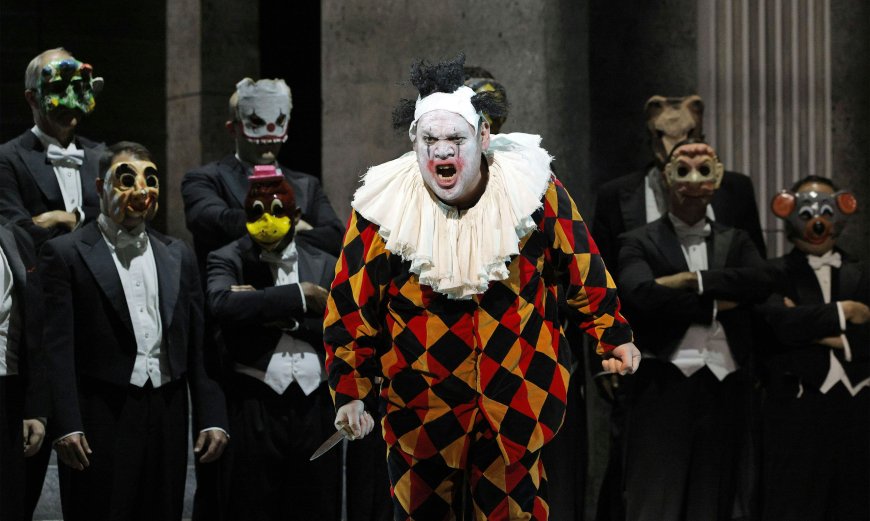
Corruption never goes out of style. That’s why Giuseppe Verdi’s Rigoletto — a cautionary tale of abuse of power by entitled, predatory men — can work in so many different settings. Verdi and librettist Francesco Maria Piave placed the action in 16th-century Mantua, but over the years directors have staged Rigoletto everywhere from Rat Pack-era Las Vegas to the JFK White House and even (at the Bavarian State Opera in 2005) the Planet of the Apes.
So director Tomer Zvulun’s smart, polished, and engrossing production for Los Angeles Opera, which opened at the Dorothy Chandler Pavilion on Saturday, May 31, and runs through June 21, is in good company. The setting is now Fascist Italy in the 1920s and ’30s. Zvulun, making an auspicious LA Opera debut, writes in his program note that he intends to show “a violent, desperate world where privilege and class sharply divide society.” Sound familiar?
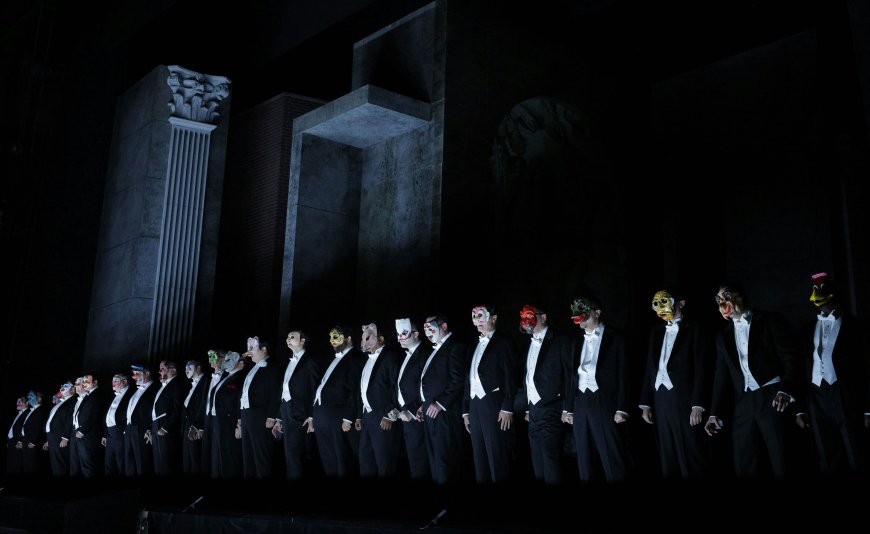
Rigoletto’s universal themes, not to mention its irresistible music, are delivered here with impressive sensitivity and nuance by a first-class cast headlined by baritone Quinn Kelsey, commanding in the title role of the tortured court jester. Music Director James Conlon does a brilliant job of guiding the orchestra and singers toward the inevitable tragic denouement, building and sustaining momentum. Altogether, this is one of the most compelling and artistically successful productions at LA Opera in recent years.
When the curtain rises and the menacing Prelude begins, we see a long line of men in tuxedos, a chorus of libertines ready to party, sing lustily, and have their way with women. On either side of the stage stand massive gray walls and pillars, a brutalist ensemble designed by Erhard Rom. The bleak, pitiless landscape offers no place to hide, especially for the hunchback Rigoletto and his vulnerable daughter, Gilda. She is easy prey for his employer, the unscrupulous Duke, always on the lookout for a new sexual conquest.
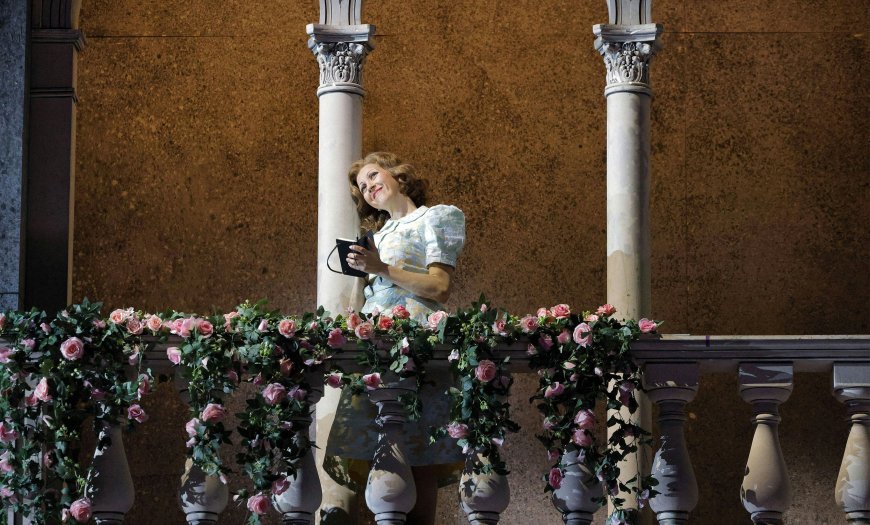
Soprano Lisette Oropesa reprises the role of Gilda, which she last sang at LA Opera in 2018. (She and soprano Kathryn Lewek, who takes the final two performances, June 18 and 21, are replacing the previously scheduled Rosa Feola.) Oropesa gives substance and depth to this character whose extreme naivete, and willingness to sacrifice herself for an unfaithful lover, can otherwise seem almost cartoonish. You can forgive her tendency to slide on pitches and the occasional strained top note. She sings effectively and artistically, excelling in her many duets with the Duke and her father.
As the Duke, tenor René Barbera lacks the physical presence and charisma of a flamboyant serial lady-killer but is vocally adept. With ringing high notes, he delivers his two big arias — “Questa o quella” and “La donna è mobile” — correctly but without much interpretive personality. For added physical presence, he sings the latter standing on a table, surrounded by ladies of the night cavorting in provocative positions.
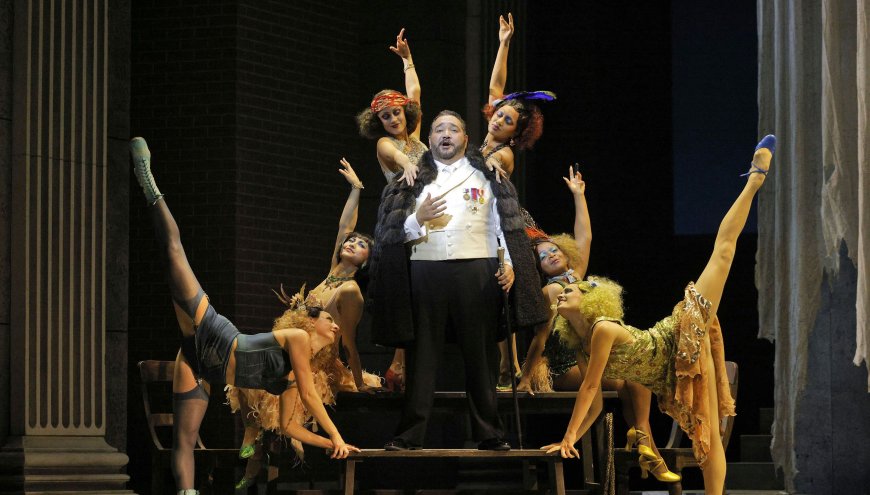
Bass Peixin Chen brings gravitas and vocal heft to the part of the paid assassin Sparafucile, and mezzo-soprano Sarah Saturnino makes the most of her cameo role as Maddalena, adding humor to her athletically lascivious attempts to ensnare the Duke.
LA Opera young artists Gabrielle Turgeon, Nathan Bowles, Hyungjin Son, and Vinícius Costa all sing their supporting roles with commitment and flair. As the nurse Giovanna, who gladly sells Gilda into the Duke’s clutches, mezzo-soprano Madeleine Lyon appears rather young but creates a vivid image of the endemic corruption in the realm.
In his company debut, baritone Blake Denson makes a strong vocal and dramatic impression as Count Monterone, whose own daughter the Duke has seduced. Where the original libretto has Monterone only arrested in Act 1, this production sees him gunned down right after confronting the Duke and cursing him and Rigoletto. When Monterone reappears in Act 2, it’s as a bloodied ghost, watching from a balcony as his coffin is carried away.
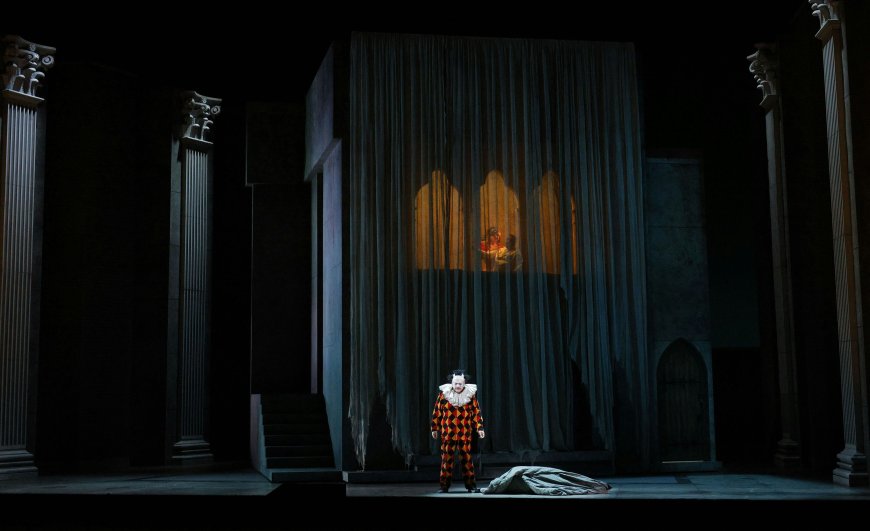
Zvulun makes another shrewd and major change in staging the ending. Traditionally, when Rigoletto realizes too late that the body delivered to him in a sack by Sparafucile is Gilda’s, not the Duke’s, his daughter revives (improbably) to engage in one last sublime and strenuous duet. Here, Rigoletto first stabs the sack in fury. But when he hears the strains of “La donna è mobile,” he realizes his terrible mistake. He unwraps Gilda and sees that she’s dead. She then appears as a ghost and sings with him from beyond the grave — a neat and poetic directorial decision.
In this final duet, Kelsey ups the dramatic intensity and vocal artistry that he’s been carefully building for the past two hours. His voice is mellow, full of pathos, and strong from top to bottom, confirming his place as one of the greatest singers to take on the role. His Rigoletto dominates and shapes the drama as he should, a King Lear undone by his own hubris. Tender, broken, chastened, and stripped of his only source of human affection, Rigoletto finally stands before us as a manipulator and victim of the cynical system that has destroyed him.




